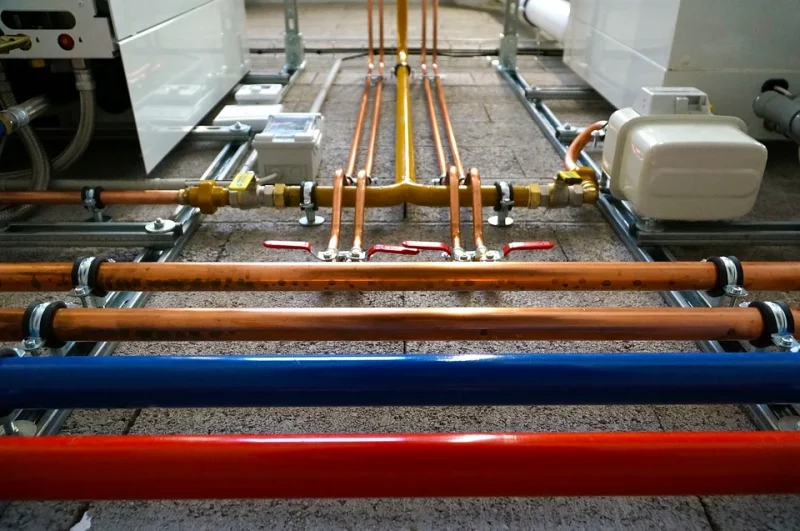What causes a water heater to leak? It is due to the causes of corrosion and rust, un-replaced sacrificial anode rod, scale build-up, increased tank pressure, and more. The device can leak beginning on top, bottom, and internally.
No matter the leak’s location, it always demands immediate attention protecting the water heater from bursting and further damage. But in case the device is beyond repair and old, it’s right to purchase a new unit.
Despite the leak issue, it does not mean that you have no options anymore. Flushing it periodically is beneficial. But then, contacting professionals to help you maintain and repair the unit is even more essential. So, let us discuss more on this below. Keep reading!
What Causes Your Water Heater To Leak?
Below are brief explanations of the causes of the water heater leaking:
#1. Increase in tank pressure
Corrosion is the number one enemy of the water heater. But then, second to it is the increase in water pressure. The elevated tank pressure can, in so many ways, cause leaks. The water expands after it is heated, called thermal expansion. Water boiling at 145 degrees takes up more space than the volume of water at 125 degrees. Leaks can occur if the water heater has no expansion tank.
Excess in water supply pressure causes damage to the water heater and home appliances, as this is true if the water pressure becomes more intense. Set the pressure in the water supply at a suitable range, but it requires a specialized regulator. Leaks occur from the water heater with the failure of pressure relief valves that demand replacement.
#2. Scale
The water heater develops corrosion and rust building up. Calcium carbonate builds up immediately after heating hard water in specific areas, as this is what you call the scale that the building up brings an insulating effect under the tank, causing it to overheat. The glass lining serving as the protection of the tank melts in gradually. Thus, the steel exposed starts to deteriorate as it rusts.
#3. An unreplaced sacrificial anode rod
The tank water heater has a single sacrificial anode rod, while the powerful water heater has 2 to 5 rods. These rods attract the cohesive articles and prevent the tank’s lining from deteriorating. The magnesium and aluminum-zinc alloy you see in the steel core wire. So, check them for possible signs of corrosion.
#4. Condensation
Leaks also likely occur because of condensation. In this case, check each valve, thus making sure you tighten them correctly. If you do not draw them, condensation continues to build up. So, contact a local plumber to fix the issue. They must determine what is going on with the water heater. If condensation comes from the vent, ensure there are no obstructions. If these are visible, clean the flue as immediately as possible. If you’re not sure of what to do, call the professional plumber to handle this for you. The water heater won’t work well if it is clogged. It might then stop working together.
#5. Sediment buildup
More sediment builds up in the water tank if the water heater stays with the owner for a long time. The collection only clogs the system or reduces the water’s quality. If the buildup stays in the base of the water tank, wait until it deteriorates. The damaged tank causes the device to explode or leak. Avoid this issue as one of the answers to what causes a water heater to leak, as you flush the tank once a year, draining the accumulated sediment.
#6. Aging tank
A water heater lasts for ten years. But, of course, the lifecycle of the water heater is prone to corrosion and rust. As mentioned, pollution causes water leakage from the water tank. Upon reaching the end of the life cycle, replacing it is the only thing needed. Or else, it will result in complete water tank failure like flooding.
#7. Hot and cold water inlet including outlet connections
Quickly fix the source of the leak in your area. Check both the channel and the outlet’s connections in pipes. See if they cause water to leak, or they lose. Better yet, constrict the link using a wrench or replace the damaged pipeline.
Contacting A Licensed Plumber Today!
The leak will cause damage to the extent that you need to call a licensed and professional plumber. One will check the leak source and do the necessary replacements and repairs. The professional will also easily replace the leaking valve if it is causing the problem. One will return the device, remove the old one and recycle it safely. So, appreciate the benefits of trusting a professional. You may also want to read about how to recycle an old water heater.
It’s A Wrap!
Now you learn what causes a water heater to leak, such as condensation, hot and cold water inlet including outlet connections, sediment buildup, un-replaced sacrificial anode rod, and more. So, you already know what to do too, in case any of these occur. Better as well to call a licensed plumber to solve the issue. Don’t hesitate to know these things too; read about how to make a solar water heater and how to test water heater thermostat.

